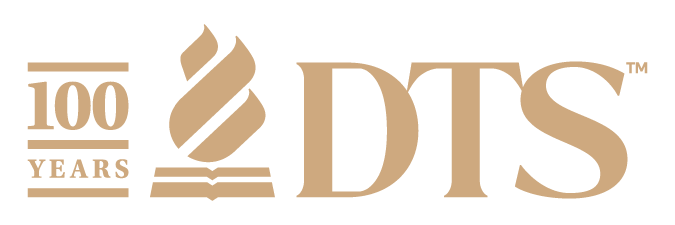Degree Overview
| Total Hours | 63 credit hours (beginning Fall 2021) |
| Degree Time Limit | 7 years from first DTS class |
| Real-time courses | 0 courses required (Fully Online degree) |
| Satisfactory Academic Progress (SAP) | 10 hours per academic year |
Priorities
- Refer to the degree plan for your entering catalog as an overall guide
- Register for core courses: BE5101, ST5101, and PM5101.
- Familiarize yourself with the Academic Success Resource Center for various tools and links to assist with your courses.
- Register for Spiritual Formation (SF5100 – Dallas, Houston, DC; SF5110 – Online/Extension locations).
- SF5110 Mentored Spiritual Formation requires an application process and will take some time to complete.
- For questions about Spiritual Formation, please email: sf@dts.edu
- Meet with an academic advisor to discuss:
- What led you to DTS
- What elective courses might be helpful to take
- The possibility of taking a hybrid and/or intensive in upcoming semesters at a DTS location
How do I complete my Communications elective?
Students must take an approved communication course specific to the student’s catalog. Some options may be available fully online (i.e. OL section) and others may be offered at a DTS location in a semester long or hybrid format. Students should consult the schedule page and their academic advisor for available options.
How do I select electives?
- What areas of knowledge do you wish to acquire?
- What ministry skills do you need to develop or sharpen?
- Students may need to complete a Ministry Communication (PM, MIM, EML, BC, or MW) elective or can choose from any department (i.e., Open Electives). Check your catalog and with your advisor for specifics on the type of electives you need to complete in your catalog and how many electives hours are remaining.
- The DTS course schedule page will provide you with a list of courses available.
- If you click “info” next to a course, you can see the course description and option to download the syllabus to understand what the course involves.
- Academic advisors are available to help you identify possible electives specifically geared to equip you in your present and future ministry.
What is RS5103 Summative Research Project? (Not required in the 2021 catalog!)
This is a capstone writing project students should take in their final year or ideally in their final semester. The Advising Center created a document “Seven Things to Know about RS5103” to best help students prepare for this course. Students must take RS5101 Orientation and Research methods before they can register for RS5103.
What is required for Graduation?
- Students must submit the Admission to Candidacy Application (including all references) by the deadline listed for each semester on the Graduation Information page.
- Confirm the Graduation Date listed in the system corresponds to your plan with your Academic Advisor and/or Registrar’s Office. (Update graduation date here)
- Review/Confirm upcoming semester plans with an academic advisor to ensure all degree requirements are met.
- Students should indicate their plans to participate in spring Commencement using the Commencement Ceremony Participation application during the available dates and after being approved for Candidacy.
Resources
The following are degree worksheets specific to students who entered the MACS or reclassified to the MACS in the following academic years. If students have questions about their specific degree requirements or degree audit, students should contact their academic advisor.
Master’s level students keep their current Logos Bible Software package. Future Logos updates or upgrades are the responsibility of each person and not done through DTS.
DTS graduates have three options for further training:
- Self-paced learning through Online Videos – All online courses and lectures are available for graduates to access through the Alumni portal. No application is required.
- Alumni nondegree – Graduates may take additional DTS courses as a nondegree student, either for audit or credit at a reduced rate. If students take courses for Alumni nondegree credit and want to use the course(s) toward another Master’s degree, then the student will need to pay the difference of tuition between the Alumni rate and current tuition rate.
- Pursue an additional DTS degree – Graduates may return to DTS to pursue a second Master’s degree or a Doctoral degree. Graduates must reapply through Admissions and previous DTS credits are reevaluated and remaining requirements are evaluated upon readmission. Doctoral degrees may require additional Master’s level work.




